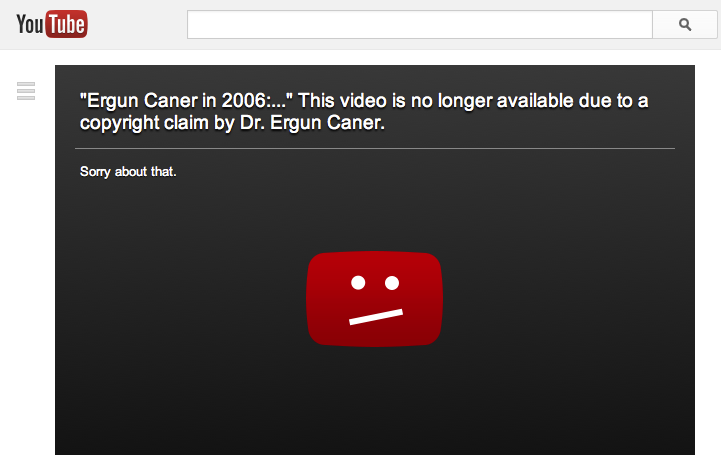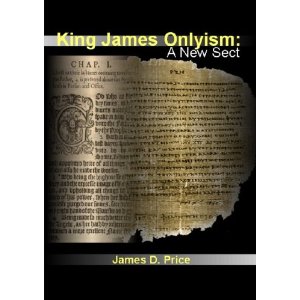I have to privilege of sitting under Dr. Morton Smith this semester for Prolegomena & Theology. Instead of writing one long paper for the course, students are required to turn in a 3-5 page paper every other week, reading it before the class and fielding questions. The aim of the paper is to summarize the view(s) of a theologian of your choice, on topics topics related to prolegomena & theology. For example, this week, the topic is revelation and I am up to bat. I decided to go with Cornelius Van Til. I know a little bit about Van Til, his apologetic and theological methodology, but I did not realize how hard it was going to be to summarize him on this topic. His chapter “Christian-Theistic Revelation” was more then I could handle in the time frame I had, and with the work load I have over the next two weeks. I decided to only deal with a portion of his thinking on this topic, that being revelation about God. Below, is my short paper. Perhaps if my summery does not help, it will at least wet your appetite to pick up Van Til’s Introduction to Systematic Theology (2nd ed.), edited by William Edgar.
In this paper I am seeking to summarize Cornelius Van Til’s chapter titled “Christian-theistic Revelation,” in his Introduction to Systematic Theology.[1] In this preliminary chapter on revelation, Van Til sets out to define a Christian-Theistic revelation. In typical Van Tillian fashion he first turns to the presupposition of revelation, beginning with the doctrine of God “it is our notion of God as an absolute and absolutely self-conscious being that gives definite meaning to our concept of revelation” (117). So in order to understand revelation at all, one must first understand who God is: independent, self-sufficient, that aseity[2] is at the very core of His essence.[3]
Not only does aseity apply to His being, but if God needs nothing to maintain His existence, He needs nothing to maintain His knowledge. A second presupposition of revelation is the fact that man is created in the image of God. Given that there can be only one who is a se, man has his origins in God, and “since there were no ideas or patterns above or distinct from the nature of God according to which God could create him,” man is made in His image. At this point, Van Til reminds his readers of the creator-creature distinction as it particularly relates to man’s knowledge. “Hence, all knowledge that any finite creature of God would have, whether of things that pertain directly to God or of things that pertain to objects in the created universe itself, would, in the last analysis, have to rest upon the revelation of God” (119).
From this point Van Til proceeds to discuss the idea that the whole universe, as a revelation of God. He maintains that in once sense creation and revelation are the same, as opposed to those who advocate the idea that “in addition to creating the world for man, God also revealed himself to man,” thereby denying that creation itself is inherently revelational (120, emphasis original). The basis for Van Til’s thought here is the constant drum beat of holy writ such as Psalm 19 therefore, “if the whole universe was created to show forth the glory of God … then it could not do this unless it was a revelation of God.”
Under The Various Fields of Revelation, Van Til hammers out the relationship between the objects of revelation, and the sources of revelation. For example, we receive revelation about God, from nature (natural theology), self (rational theology) and God (theology proper).[4] First, Van Til calls our attention to natural theology, stating that man in paradise could reason correctly from nature to natures God (emphasis mine). Quickly, Van Til squashes any notion of a natural theology post fall, “nature has had a veil cast over it on account of the sin of man, and the mind of man itself has been corrupted by sin,” therefore, “no one of himself knows nature aright” (133). According to Van Til, the first chapter of Romans describes the present-day natural theology, which does not take into account man’s current condition. Reasoning from nature to nature’s God could have been done prior to the fall, but impossible after man’s initial disobedience.
There is second issue Van Til addresses with reference to theologians who advocate a present-day natural theology. He makes the point that in the garden, man “did not begin from nature as from something that was known to him independently of God in order thus to reason to the God of whom he did not know” (133). For Van Til, knowing the universe, knowing self and knowing God would have been simultaneous.
In chapter nine, the discussion of natural theology is addressed postlapsarian. Natural theology does not necessarily change, God continues to reveal himself through creation, but according to Van Til, since man no longer reasons analogically[5] (as Adam did), he can no longer reason from nature to nature’s God. Since the fall, man reasons univocally — as if man is the final court of arbitration (i.e. autonomous), and because man reasons this way “they conclude that no god exists or that a god exists, but never that the true God exists” (178).[6]
The fact that man can not reason analogically without be regenerated does not negate the fact that he ought to reason analogically.[7] “Men ought, therefore, to know him. Men ought, therefore, to use the cosmological argument analogically in order thus to conclude that God is the Creator of this universes. Men ought to realize that nature could not exist as something independent. They ought to sense that if anything intelligible is to be said about nature, it must be in relation to the absolute system of truth, which is God.” Van Til continues this line of thinking, mentioning the ontological argument, the laws of nature, men ought to see disorder in nature as unnatural, that it is by the grace of God that man lives, etc. “The facts are there before them, and they ought to see the facts. Hence they ought to glorify the Creator” (180-81).
The next section under man’s prelapsarian position is Revelation about God from Man Himself—Rational Theology. Here, Van Til again turns to the garden and man’s natural state of affairs. In the garden, man would have understood his subordination to God and would have never started from himself, considering whether God existed or not. “Adam in Paradise actually was normal and therefore did not think that he was ultimate” (emphasis original). Adam understood he was a creature of God and therefore knowing himself, he would have known himself as a created and therefore, finite. But knowing himself, made in the image of God, he would have known that the One who planted the ears, can hear. The one who planted the eyes, can see.
Again, Van Til turns to Revelation about God from Man himself in a post fallen context in chapter nine. He states that “men ought to reason analogically about themselves…they cannot in any true sense define or describe themselves except in terms of their derivation from and responsibility to God. They ought to see that the words being, cause, and purpose have no possible meaning when applied to themselves, except in relation to God as their Creator and Judge.” When man speaks of rationality or irrationality, he presupposes or it requires, an absolute rationality; therefore, from man himself, he knows God. While this is the nature of case, Van Til recognizes that man in a fallen state seeks to hold down this knowledge. Nevertheless, even though man reasons univocally, he can not escape that fact that he is an image bearer; and that any use of reason whatsoever presupposes God. Therefore, if man has any self-consciousness, he is God-conscious.
Finally, Van Til writes in reference to Revelation about God from God. He writes “whatever was not involved in the concept of God as the presupposition of the universe as it was when it was created had to be directly reveled to man if he was to know it at all” (136). “God gave” to Adam “a positive thought communication of himself. God walked and talked with man. Here was true theophany.” Van Til believes God disclosed himself to man in this way, to form an intimate relationship with man (187).
Obviously after the fall, this intimate connection with God was taken away. And now God addresses man in two ways: either in reference judgment, or with reference to mercy. Man does continue to worship, as a creature he can do no less. But, according to Romans 1, men turn from the worship of the God he knows, to things he creates himself.
While sin has distorted reality, man can not escape their knowledge of God. And so natural theology, rational theology and theology proper do continue as revelation of God. And as Van Til indicates, these three form one system of truth. “God had one comprehensive plan with respect to the universe inclusive of his natural and supernatural revelation” (136).
——————————————————————————–
[1] Cornelius Van Til, An Introduction to Systematic Theology, 2nd edition, Ed. William Edgar (Phillipsburg, P&R, 2007), 117-136.
[2] Regarding aseity, John Frame states the following “since God is a se, he does not owe his existence to anything or anyone outside himself, nor does he need anything beyond himself to maintain his existence.” In Divine Aseity in Apologetic, accessed 9/12/09.
[3] I believe we need to define essence as “the most significant element, quality or aspect of a thing or person.” See Webster’s, accessed 9/12/09.
[4] Keep in mind that Van Til is dealing with revelation before the fall. From this point forward, I am going to contrast what Van Til says about pre-fall revelation with post-fall, which he addresses in chapter 9.
[5] Thinking God’s thought after him – subjecting your reasoning to God’s revelation.
[6] Bill Edgar’s footnote at this point reads “if human understanding were the only standard, then it would follow that we would never find a God who is qualitatively greater than ourselves. Even ‘existence’ turns out to be a human concept. Therein lies the error of univocal thinking.”
[7] There is no lack of information. The same revelation exists for man, as it did Adam.






